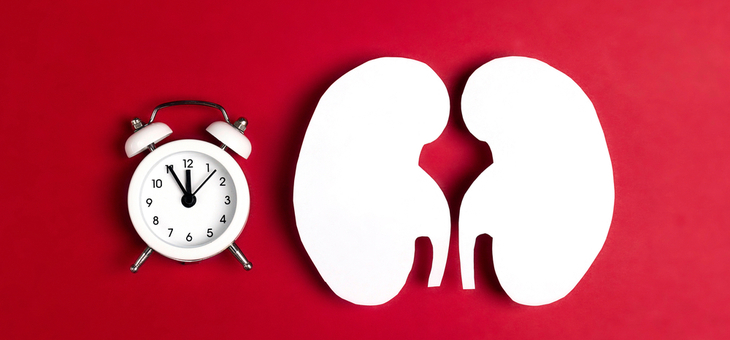There’s a saying, age is only a number. While true, that number does not tell us a lot about a person’s health. Get a group of 60-year-olds together and it’s likely that, health and energy-wise, some will be younger than their years and some older.
Super-agers, the term used to describe people who “approach the end of the human lifespan with brains that function as if they were 30 years younger”, drive that point home.
Our chronological age is merely an indication of our life stage, but there is an organ that could reveal how old our body really is.
That’s our kidneys, says physician, journalist and broadcaster Dr Norman Swan.
“It’s all very well saying you’re 39 or 69, but all of us know people in their 30s who look decrepit and people in their 70s who look young, are so bursting with wellbeing they put the rest of us to shame and can climb Kilimanjaro before breakfast,” he says in his book So you think you know what’s good for you?
Dr Swan says our “kidney clock” may reflect our real age and can tell us how old we are on the inside.
But he warns that most of us only know something is wrong with our kidneys long after we should have headed to our doctor.
“Our kidneys may reflect our real age,” he writes. “It’s also known that by the time the standard test of kidney function – the creatinine level in your blood – is registering as abnormal, you’ve already lost 30-40 per cent of your kidney function.
“At that point – and it’s probably a tipping point–- your kidney damage starts to multiply your risk of heart disease and stroke.
“If someone has reduced kidney function, they’re probably a lot older biologically than their last birthday would indicate.
“It’s not that our kidneys control how we age, it’s more that they may be clocks – windows through which we can see what’s truly happening inside ourselves.”
The National Kidney Foundation explains that the kidneys are “powerful chemical factories’ and perform the following functions:
- remove waste products from the body
- remove drugs from the body
- balance the body’s fluids
- release hormones that regulate blood pressure
- produce an active form of vitamin D that promotes strong, healthy bones
- control the production of red blood cells.
No wonder we need two of them!
Kidney Health Australia says one in three Australians has an increased risk of kidney disease, including people with diabetes, high blood pressure, established heart problems, a family history of kidney disease or kidney failure. Also, people who are obese, smoke or are 60 or older are at heightened risk.
Dr Swan says a simple blood test, called cystatin C, can give advance warning that our kidneys are in trouble. The National Kidney Foundation says cystatin C is a protein produced in your body. When kidneys are working well, they keep the level of cystatin C in the blood just right. But if the level of cystatin C in the blood is too high, it may mean the kidneys are not working well.
Warning signs of kidney disease include:
- you’re more tired, have less energy or are having trouble concentrating
- you’re having trouble sleeping
- you have dry and itchy skin
- you feel the need to urinate more often
- you see blood in your urine
- your urine is foamy
- you’re experiencing persistent puffiness around your eyes
- your ankles and feet are swollen
- you have a poor appetite
- your muscles are cramping.
What we can do to ensure our kidneys are as health as possible is: keep our blood pressure low by losing weight, exercise, limit salt and alcohol intake or take medications if necessary, don’t smoke and adopt a Mediterranean style diet.
Are you confident your kidneys are healthy? What do you think of Dr Swan’s ‘kidney clock’ concept? Why not share your thoughts in the comments section below?
Also read What your body odour says about your health
Disclaimer: This article contains general information about health issues and is not advice. For health advice, consult your medical practitioner.

